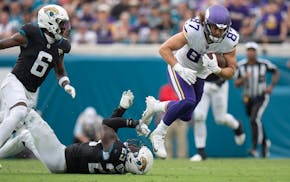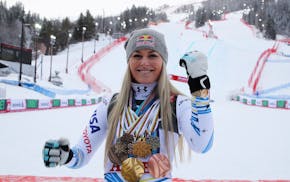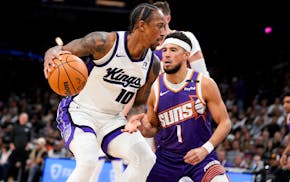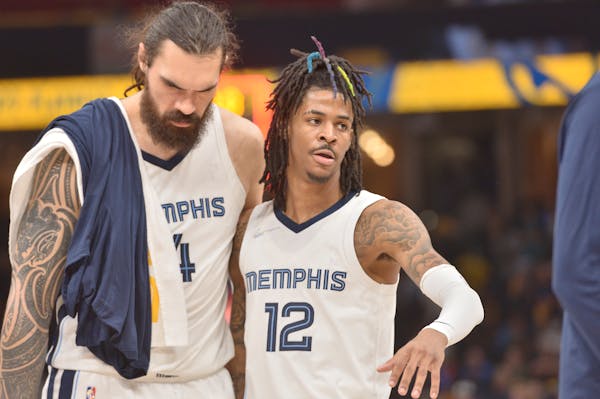MEMPHIS – Malik Beasley has to sometimes stop himself from working too much. It's something he and the Wolves coaching staff recognize. Sometimes less is more.
When Beasley first appeared in the playoffs as a member of the Nuggets in 2019, he said he prepared so hard he was mentally drained by the time the games rolled around.
He wasn't going to make the same mistake again.
"I knew coming into the game it was going to be a lot of nerves and things like that," Beasley said. "Just wanted to stay even keel. Make sure my mind wasn't racing, trying to do too much. Just have fun and play the game. That experience helped me out a lot."
That showed in Beasley's Game 1 performance, when he scored 23 points off the bench and hit 4-for-10 from three-point range. Beasley's production was timely, given starting point guard D'Angelo Russell struggled in shooting 2-for-11 and scored 10 points, eight points below his regular-season average.
Beasley picked up his game after the All-Star break, when he put aside a slow first half. Last summer, Beasley served time in a workhouse stemming from a guilty plea for threats of violence from an incident in his house in Plymouth in September 2020. That affected his offseason preparation and through January, Beasley wasn't playing up to his standards.
Before the All-Star break, he was shooting 35% from three-point range and had a negative net rating.
But after the break, Beasley has played more like the player he was a season ago; he shot 45% from three-point range and coach Chris Finch said Beasley has played some of the best defense of his career.
"He just got over himself," Finch said. "He stopped worrying about his misses, he stopped worrying about his minutes, he stopped worrying about his opportunities. He started worrying about just finding his game in the flow of what we were doing and then guarding and doing all the little pieces that we needed everybody to do."
Defense wasn't always a concern for Beasley. That has come along as the season progressed. Beasley said his improvement came because he simply started to be more aware about the details that come with playing NBA defense.
"It's the care factor," Beasley said. "Beginning of the season, I was just trying to get back in shape, get my rhythm, find a rhythm. But now I'm focused on winning the game, whether that's rebounding, making shots or defending. In the playoffs, it's iso-basketball. They always go for the mismatch and things like that. I don't want to be that guy."
Beasley's three-point shooting gives the Wolves, who attempted the most three-pointers in the NBA during the regular season, a potent scoring option off the bench. He attempted 8.1 threes per game during the regular season.
So long as he's hitting, he can give the Wolves an advantage against a Memphis team that shot the 23rd-most threes this season and hit roughly the same percentage as the Wolves (35.8% for the Wolves; 35.3% for Memphis). That's one area where the Wolves won Game 1. They hit 16-for-41 from three-point range compared to 7-for-27 for the Grizzlies.
Memphis knows it is going to have to keep pace to get back in the series.
"Make the extra pass," Grizzlies guard Ja Morant said. "Pretty much it. Me personally, I put guys in tough situations, you know, might take an extra dribble and a lot of defenders will be there to contest when I could have made the earlier pass and we have a wide-open shot. It's just taking and making more threes."
The Wolves just have to keep doing what they're doing in that area. Beasley is a big reason they can.

Minnesota's PWHL champion begins camp amid change, with name: Frost

'Really talented' duo positions Vikings to ease into Hockenson's return

Souhan: Lindsey Vonn returns to U.S. Ski Team

How will Vikings' Bynum top his latest viral celebration?


